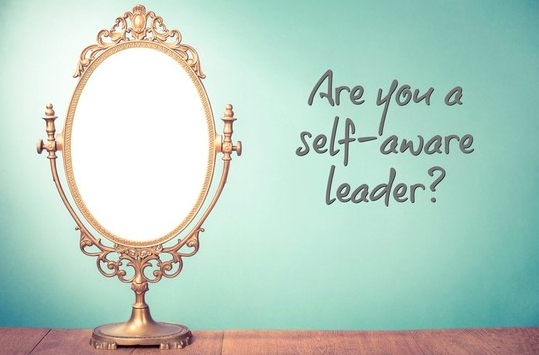
Self-awareness is the #1 predictor of your career, managerial and leadership success. It’s also the #1 reason people derail their career. Here are four questions will help you on that journey.
Why does self-awareness matter so much?
Your thoughts, behaviors, emotions, and the impact they have on others will dictate how others view you, interact with you, and support you.
Only 10% to 15% of people are self-aware, but 95% believe that they are. Most people are living in a delusion and they can’t see the reality the situation.
Here are two examples to highlight this point on self-awareness:
- A manager who doesn’t trust his team micromanages them and doesn’t solicit feedback because they believe they have all the solutions. He or she comes off as a jerk, and then a wave of people quit over the next six months. That significantly impacts productivity and the overall culture.
- A project doesn’t go as well as planned. Instead of blaming members on the team, the group leader first reflects on what role they played in the process. They take accountability for their role. Did they give sufficient guidance? Did they put the right people in the right roles? etc. They also have a post-mortem discussion looking at what happened objectively and seek feedback/suggestions from the group. They implement those suggestions for the next project. The group leader and team members crush their metrics and goals on the next project they work on together.
Do you see why this matters? Can you think of an example in your organization where self-awareness is an issue?
Here’s why it’s challenging:
I tell my clients all the time they are like Oprah. They can see all the problems around them and have solutions. But they can’t get see the problems in their own lives.
I’m sure you have had a friend, family member and/or colleague come to you for advice. You give them that advice and then they make the same mistake again. You clearly see this pattern and point it out again to them. But they make the same mistake again. They don’t get it. I’m sure that gets you frustrated because you want to help them because you care.
Well, the same thing happens to you too. It’s because our brain is wired for survival and not happiness. It’s wired to keep us safe, and doesn’t allow us to see everything that is going on around us. We would get completely overwhelmed and it would affect our survival.
That’s why it’s easier to coach other people than it is yourself.
Make sense?
Before you start the questions, I want you to write down the answers to the following two questions:
- What are my current career challenges? This could issues you see, feedback from others, information from a review, etc.
- If you solved those problems, what would it do for you?
Here are four questions to answer to raise your self-awareness:
- What’s the real impact of self-awareness?
- Who is one person you know that isn’t self-aware? What “un-self-aware” behaviors do you see from them? What is the impact of those behaviors?
- Who is one person you know that is self-aware? What “self-aware” behaviors do you see from them? What is the impact of those behaviors?
- What were three core values you raised with? Does your present-day belief system reflect those values? Do you see the world differently than you were brought up to see it?
- What were the one to two most pivotal experiences from your childhood through high school years? What happened? How did they shape and affect you?
- Look at your biggest blind spots and/or current challenges? Can you see any common threads from #3?
What breakthroughs or realizations did you have? Have you connected anything you’ve learned to your current career challenges?

